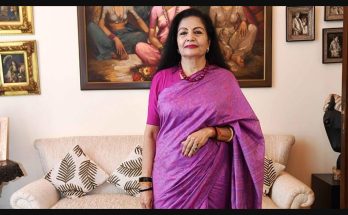 As the political gridlock in Pakistan turned violent, Pakistan’s embattled Prime Minister Nawaz Sharif attempted to stand his ground and has rallied all parliamentary forces against the protestors in an emergency joint session of both house of the parliament on September 2.
As the political gridlock in Pakistan turned violent, Pakistan’s embattled Prime Minister Nawaz Sharif attempted to stand his ground and has rallied all parliamentary forces against the protestors in an emergency joint session of both house of the parliament on September 2.
Amid rumours of a coup, this will be the parliament’s first meeting since protests turned violent on August 30, leaving at least three dead and hundreds injured.
The session follows a meeting between Sharif and the leaders of other political parties where he asserted that he would not resign or go on leave. He added he would not set a precedent under which a few people could take hostage the mandate of millions of people.
“We have rule of Constitution here and we will not allow anyone to abrogate it,” said Sharif.
Following the meeting, the leaders issued a joint statement criticising the protests and affirming their belief in democracy.
On September 1, angry protestors had stormed the secretariat and the state run Pakistan TV, alleging bias in the PTV’s coverage of events. Pakistan’s army had to step in to help flush out the protestors from the building.
Fuelling anger and suspicion among protestors and counter-protestors are widespread misinformation, rumours and conspiracy theories, including speculations that Pakistan’s all-powerful army has asked Nawaz Sharif to step down. The army’s public relations wing promptly issued a statement in which it described itself as an “apolitical institution” and rejected that it was supporting protest leader Pakistan Tehreek-e-Insaf (PTI) leader Imran Khan and Pakistan Awami Tehreek (PAT) leader Dr Tahirul Qadri.
However, Pakistan’s army chief General Raheel Sharif has held separate meeting with the prime minister and protest leaders, but no deal or deadline seem to have emerged from these meetings.
There were also reports that the top rung of Pakistan’s army have met in Rawalpindi where they urged the government to resolve the political crisis at the earliest, adding the army “would never fall short of meeting national aspirations”.
Khan alleges Sharif’s party’s rigged the 2013 general election, while Qadri has called for the overthrow of the government and wants to rewrite the constitution.
Protestors have attempted to storm Sharif’s official residence in Islamabad’s high security “Red Zone” since August 30, ensuring clashes with Pakistan police; who have reportedly cracked down on protestors with severity.
The protests, while attracting large crowds, do not have popular backing, as other opposition parties have rallied behind the government in support of holding democratic values and the constitution.
“Honourable PM, no one can force you to resign. All parliamentarians are with you,” said opposition leader Senator Aitzaz Ahsan during the emergency meeting of both houses of the Parliament on September 2.
Pakistan’s Supreme Court, too, has stepped in to intervene, with the court issuing a notice to summoning all parliamentary parties to resolve the deadlock.
Pakistan, which has a history of military lead coups, witnessed a civilian transfer of power after the 2013 elections. The election results were internationally recognised as being free and fair.
Author Profile
- India Writes Network (www.indiawrites.org) is an emerging think tank and a media-publishing company focused on international affairs & the India Story. Centre for Global India Insights is the research arm of India Writes Network. To subscribe to India and the World, write to editor@indiawrites.org. A venture of TGII Media Private Limited, a leading media, publishing and consultancy company, IWN has carved a niche for balanced and exhaustive reporting and analysis of international affairs. Eminent personalities, politicians, diplomats, authors, strategy gurus and news-makers have contributed to India Writes Network, as also “India and the World,” a magazine focused on global affairs.
Latest entries
 DiplomacyApril 23, 2024Resetting West Asia, re-booting the world, but not fast enough: T.S. Tirumurti
DiplomacyApril 23, 2024Resetting West Asia, re-booting the world, but not fast enough: T.S. Tirumurti India and the WorldApril 22, 2024India’s G20 Legacy: Mainstreaming Africa, Global South in global agenda
India and the WorldApril 22, 2024India’s G20 Legacy: Mainstreaming Africa, Global South in global agenda DiplomacyApril 10, 2024Diplomat-author Lakshmi Puri pitches for women power at LSR
DiplomacyApril 10, 2024Diplomat-author Lakshmi Puri pitches for women power at LSR India and the WorldApril 6, 2024UN envoy pitches to take India’s solutions to the world stage
India and the WorldApril 6, 2024UN envoy pitches to take India’s solutions to the world stage







